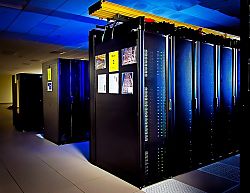

On 17 February 2020 the Department for Business, Energy and Industrial Strategy confirmed a £1.2 bn investment for a state-of-the-art supercomputer to help predict severe weather and the impacts of climate change faster and more accurately.
The data obtained by the new supercomputer will be used to help more accurately predict storms, select the most suitable locations for flood defences and predict changes to the global climate more accurately.
The new machine, which will be managed by the Met Office, will help through:
The investment will replace Met Office supercomputing capabilities over a 10-year period between 2022-2032, as the current Met Office Cray supercomputers will reach their end of life in late 2022. The first phase of the new supercomputer will increase Met Office computing capability by 6-fold alone. It is expected that the contractual value of the supercomputing capability will cost around £854 million, while the remaining amount of the £1.2 bn will provide for investment in Observations Network and the programme office costs.
Secretary of State and newly appointed COP26 President Alok Sharma said: "Over the last 30 years, new technologies have meant more accurate weather forecasting, with storms being predicted up to five days in advance.
"Come rain or shine, our significant investment for a new supercomputer will further speed up weather predictions, helping people be more prepared for weather disruption from planning travel journeys to deploying flood defences".
The new supercomputer will also aim to strengthen the UK's supercomputing and data technology capabilities, driving forward innovation and growing world-class skills across supercomputing, data science, machine learning and artificial intelligence.